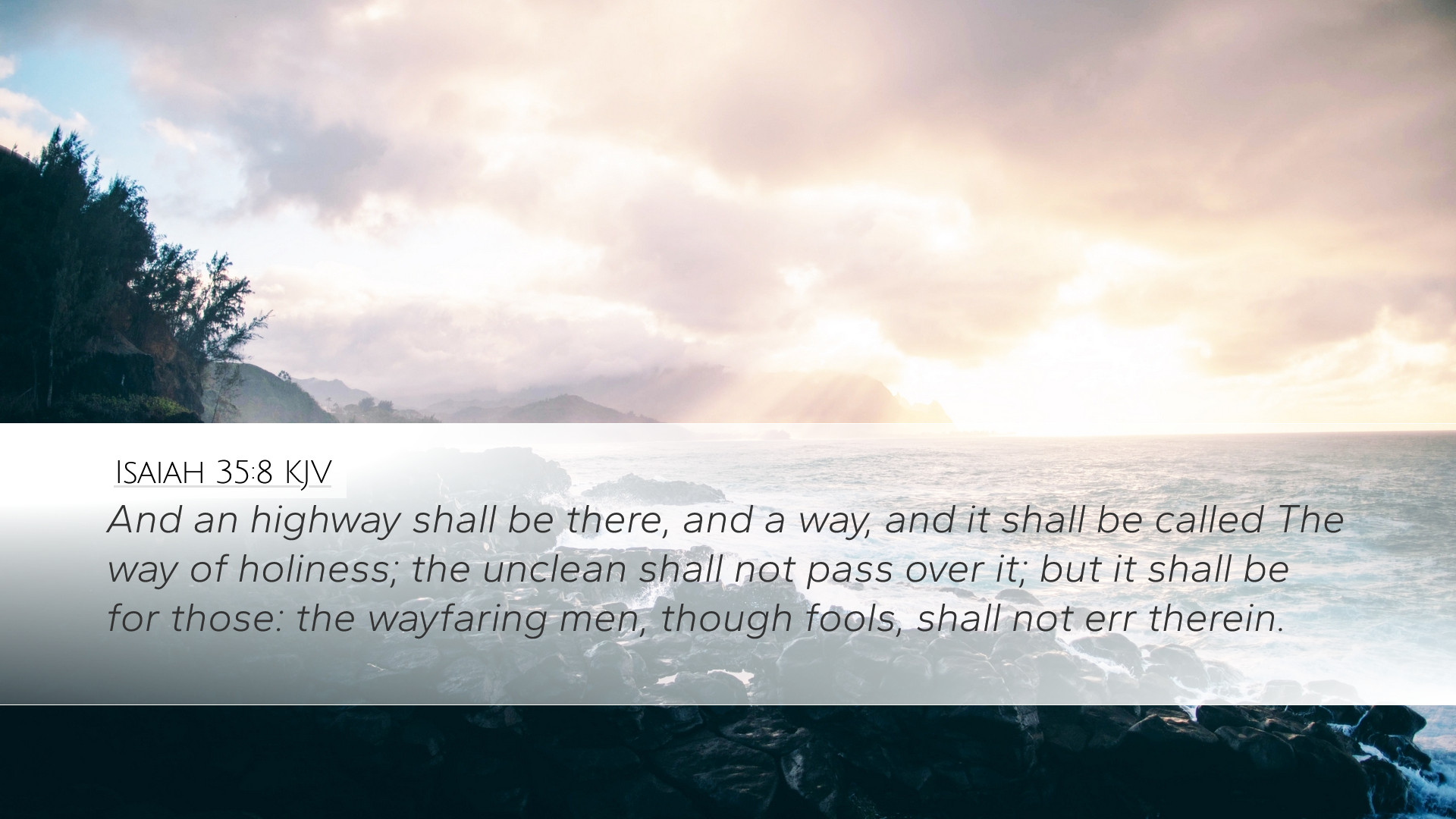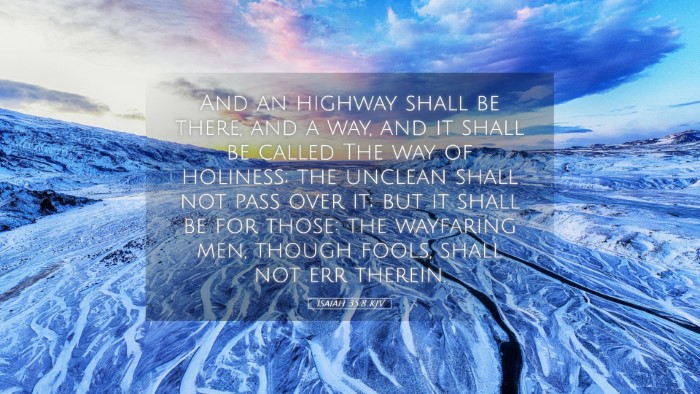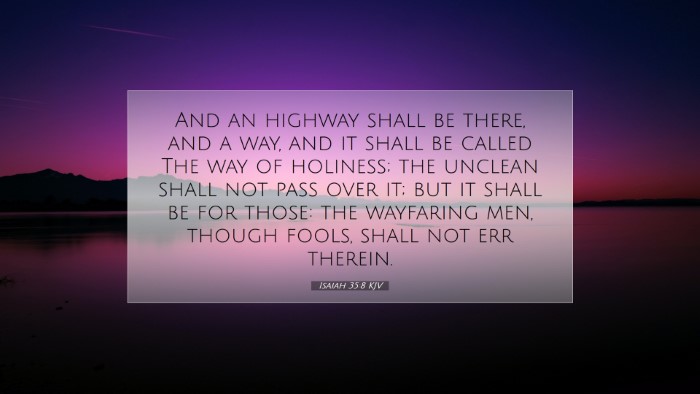Isaiah 35:8 Commentary
Text of Isaiah 35:8: "And a highway shall be there, and a way, and it shall be called The way of holiness; the unclean shall not pass over it; but it shall be for those: the wayfaring men, though fools, shall not err therein."
Introduction
The verse Isaiah 35:8 forms a part of a beautiful passage that speaks of restoration, joy, and the ultimate redemptive work of God for His people. Here, the prophet Isaiah outlines a path designed for the righteous—a "highway of holiness." This commentary synthesizes insights from various public domain sources to explore the depth of this verse and its implications for believers today.
Exegesis and Analysis
The Prophetic Context
Isaiah's prophecy comes during a time of turmoil and uncertainty for Israel. Matthew Henry emphasizes the hope embedded within the text: "It is a promise of safety and protection for the faithful." In the face of impending judgment, Isaiah foresees a time of restoration, marked by a new, safe way for the people of God.
Symbolism of the Highway
Albert Barnes provides an insightful examination of the "highway" in this verse, suggesting that it symbolizes the way of salvation and holiness. The metaphor portrays God's prepared path for His people—one that is clean and free from danger. The highway contrasts with the chaotic paths of sin, where the unclean cannot tread.
The Way of Holiness
1. Definition: The "way of holiness" signifies a journey set apart for God's people who have been sanctified for His purposes. Adam Clarke remarks that "holiness is not merely a state; it is a way of life." It encompasses living in accordance with God's statutes and commandments.
2. Implications for Believers: This path is exclusive to the righteous, yet accessible even to those who may feel inadequate. Clarke notes that the highway is not only for the skilled but also for "wayfaring men." This inclusivity sends a powerful message of grace, offering reassurance that God's path is available for those who earnestly seek Him.
Exclusion of the Unclean
The passage emphasizes that "the unclean shall not pass over it." This phrase elicits a strong affirmation of holiness and purity required to enter into God's presence. Barnes comments that although the unsanitized may not tread this path, the concept reflects God's mercy—where the heart of the seeker can find redemption and cleansing.
Henry elaborates further: "The unclean may not walk this way, but those who repent and seek forgiveness may approach the highway." Thus, this verse encourages believers to aspire to holiness while pointing to the transformative power of God's mercy.
A Path for All
Significantly, the final portion of Isaiah 35:8 reinforces that "the wayfaring men, though fools, shall not err therein." This statement is both liberating and encouraging. Adam Clarke observes, “Even the most simple-minded and unlearned can walk rightly on this path.” The promise is that, despite their background or intellect, those who embark on this highway will not lose their way. The simplicity of the Gospel allows all who seek divine truth to find it without confusion or fear.
Theological Implications
Holiness and Accessibility
Isaiah 35:8 serves as a theological foundation for understanding holiness not as an exclusion but as an invitation. As Matthew Henry aptly states, "This way of holiness is opened by the blood of Christ, whereby all may come." The verse encapsulates the heart of God's redemptive purpose, calling each believer to a sanctified life while affirming the availability of grace to all who earnestly seek it.
The Role of the Community
The highway metaphor also suggests a communal aspect of faith. In pursuing holiness, believers are journeying together toward a shared goal: "The way of holiness unites us with fellow travelers," remarks Albert Barnes. The path is not just for individual believers; it is meant to foster cooperation and support among God's people.
Conclusion
In conclusion, Isaiah 35:8 presents a profound and hopeful message. It describes a pathway that guarantees safety and sanctification for God's people while inviting those who seek Him, regardless of their status or intellect. The highway symbolizes the journey into divine presence, where holiness is paramount yet attainable through Christ. As pastors, students, theologians, and scholars reflect on this text, may the richness of its promise inspire believers to pursue holiness with joy and assurance.
Key Takeaways
- The promise of a highway emphasizes hope: God's plan for restoration culminates in a way secured for His chosen people.
- Holiness is both a requirement and an invitation: While the unclean cannot traverse this path, repentance and faith make it accessible to all.
- Inclusivity for the simple-minded: The promise extends to those who may feel foolish or inadequate, as all who seek can find direction on this path.
- A communal journey: Believers journey together on the way of holiness, supporting one another in their pursuit of righteousness.


